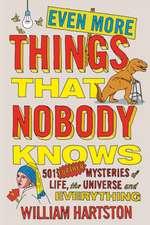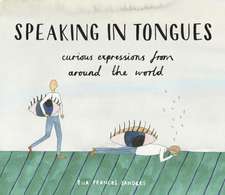Plato: Bloomsbury Library of Educational Thought
Autor Robin Barrow Professor Richard Baileyen Limba Engleză Paperback – 22 oct 2014
| Toate formatele și edițiile | Preț | Express |
|---|---|---|
| Paperback (1) | 250.45 lei 6-8 săpt. | |
| Bloomsbury Publishing – 22 oct 2014 | 250.45 lei 6-8 săpt. | |
| Hardback (1) | 862.01 lei 6-8 săpt. | |
| Bloomsbury Publishing – 14 noi 2007 | 862.01 lei 6-8 săpt. |
Din seria Bloomsbury Library of Educational Thought
- 13%
 Preț: 251.83 lei
Preț: 251.83 lei - 22%
 Preț: 250.45 lei
Preț: 250.45 lei - 13%
 Preț: 250.55 lei
Preț: 250.55 lei - 13%
 Preț: 251.39 lei
Preț: 251.39 lei - 13%
 Preț: 251.57 lei
Preț: 251.57 lei - 13%
 Preț: 251.83 lei
Preț: 251.83 lei - 13%
 Preț: 250.45 lei
Preț: 250.45 lei - 13%
 Preț: 256.12 lei
Preț: 256.12 lei - 13%
 Preț: 250.01 lei
Preț: 250.01 lei - 13%
 Preț: 251.39 lei
Preț: 251.39 lei - 13%
 Preț: 253.75 lei
Preț: 253.75 lei - 13%
 Preț: 251.83 lei
Preț: 251.83 lei - 13%
 Preț: 257.50 lei
Preț: 257.50 lei - 13%
 Preț: 256.12 lei
Preț: 256.12 lei - 13%
 Preț: 257.97 lei
Preț: 257.97 lei - 13%
 Preț: 250.45 lei
Preț: 250.45 lei - 13%
 Preț: 252.42 lei
Preț: 252.42 lei -
 Preț: 300.62 lei
Preț: 300.62 lei -
 Preț: 251.51 lei
Preț: 251.51 lei
Preț: 250.45 lei
Preț vechi: 288.13 lei
-13% Nou
Puncte Express: 376
Preț estimativ în valută:
47.93€ • 49.85$ • 39.57£
47.93€ • 49.85$ • 39.57£
Carte tipărită la comandă
Livrare economică 12-26 aprilie
Preluare comenzi: 021 569.72.76
Specificații
ISBN-13: 9781472504852
ISBN-10: 1472504852
Pagini: 216
Dimensiuni: 156 x 234 x 13 mm
Greutate: 0.34 kg
Editura: Bloomsbury Publishing
Colecția Bloomsbury Academic
Seria Bloomsbury Library of Educational Thought
Locul publicării:London, United Kingdom
ISBN-10: 1472504852
Pagini: 216
Dimensiuni: 156 x 234 x 13 mm
Greutate: 0.34 kg
Editura: Bloomsbury Publishing
Colecția Bloomsbury Academic
Seria Bloomsbury Library of Educational Thought
Locul publicării:London, United Kingdom
Caracteristici
Provides both a useful overview and synthesis of Plato's contribution to educational thinking in one volume, saving students valuable research time
Notă biografică
Robin Barrow is Professor of Philosophy of Education at Simon Fraser University, Canada and Fellow of The Royal Society of Canada. He is the author of 25 books and over 100 articles in the fields of philosophy, classics and education.
Cuprins
AcknowledgementsAbbreviationsSeries Editor's PrefaceForewordPart I: Intellectual Biography 1. Historical Background2. Sparta3. The Presocratics4. The Nature of the Times and Socrates5. The Sophists6. ConclusionPart II: A Critical Exposition of Plato's Educational Thought7. Primary Education in the Republic8. Secondary Education in the Republic9. The Theory of Ideas10. The Concept of Education11. Nature vs Nuture12. Moral Education, Indoctrination and Censorship13. The Humanities14. The Soul15. Dialectic16. Eros17. Summary: An Educational TheoryPart III: The Reception and Influence of Plato's Work18. The Academy and an Outline of Plato's Philosophical Legacy19. Plato's Legacy in Pre-Twentieth Century Educational Philosophy20. Plato's Legacy in Educational ThoughtPart IV: The Relevance of Plato Today 21. The Question of Relevance22. Some Psychological Questions23. Truth and Knowledge24. Educational Distribution25. Value Questions26. Philosophy and Educational TheoryEpilogueBibliographyIndex
Recenzii
This is a superb book: well written, beautifully crafted, and comprehensive in its content. Robin Barrow uses his considerable scholarly ability to show the importance of Plato's educational theory not only for the ancient Greeks but for the 21st century. He explains Plato's ideas in a way that makes them accessible to students and scholars alike.
In this excellent book Barrow displays impressive scholarship throughout but, at the same time writes in a clear, elegant and approachable manner. His views on Plato's ideas are cogently argued and his conclusions concerning Plato's educational influence, although circumspect, seem essentially correct. Altogether, a fine contribution to the history of the philosophy of education.
In this excellent book Barrow displays impressive scholarship throughout but, at the same time writes in a clear, elegant and approachable manner. His views on Plato's ideas are cogently argued and his conclusions concerning Plato's educational influence, although circumspect, seem essentially correct. Altogether, a fine contribution to the history of the philosophy of education.







